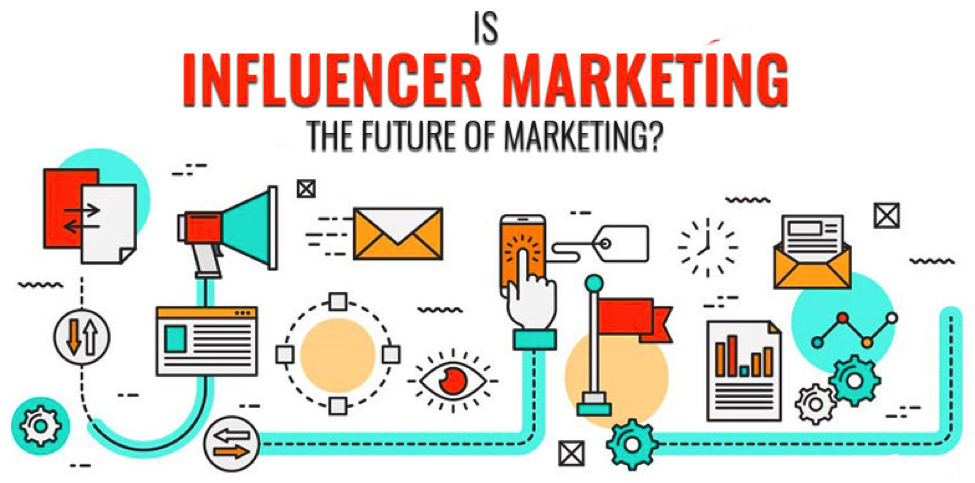In the dynamic world of advertising, staying relevant and effective requires constant adaptation to emerging trends. One such trend that has gained tremendous traction in recent years is influencer marketing. As social media platforms continue to dominate our digital landscape, influencer marketing agencies have emerged as key players in reshaping the way brands connect with their target audiences.
The Rise of Influencer Marketing
Influencer marketing has transformed from a niche strategy to a mainstream advertising powerhouse. Traditionally, brands relied on traditional forms of advertising such as television, radio, and print media to reach their audience. However, the digital era brought about a paradigm shift, with social media platforms becoming the go-to spaces for people to connect, share, and discover new content.
This shift in consumer behaviour created an opportunity for brands to leverage individuals with substantial social media followings—known as influencers—to promote their products or services. These influencers, often experts or enthusiasts in specific niches, have the power to sway their followers' opinions and purchasing decisions.
The Role of Influencer Marketing Agencies
With the growing significance of influencers, influencer marketing agencies have emerged as intermediaries between brands and influencers. These agencies specialise in identifying the right influencers for a brand, negotiating partnerships, and ensuring that the influencer's content aligns seamlessly with the brand's messaging.
One of the key advantages of influencer marketing agencies is their ability to navigate the complex landscape of social media. Platforms like Instagram, YouTube, TikTok, and Twitter each have unique features and audience demographics. Influencer marketing agencies possess the expertise to match brands with influencers whose content resonates most effectively with the target audience on specific platforms.
Targeted Reach and Authenticity
In traditional advertising, reaching a specific target audience often involved broad strokes, hoping that the message would resonate with a portion of viewers. Influencer marketing agencies, on the other hand, enable brands to achieve highly targeted reach. By selecting influencers whose followers align with the brand's target demographic, marketers can deliver messages directly to the individuals most likely to be interested in their products or services.
Moreover, the authenticity of influencer marketing sets it apart from traditional advertising. Influencers build relationships with their followers based on trust and authenticity. When an influencer promotes a product, it often feels like a recommendation from a friend rather than a blatant advertisement. This authenticity helps brands connect with consumers on a personal level, fostering trust and loyalty.
Measurable Impact and ROI
One of the challenges in traditional advertising has been the difficulty in accurately measuring the impact of campaigns. Influencer marketing agencies utilize data analytics and metrics to track the performance of influencer campaigns rigorously. From engagement rates and impressions to conversion metrics, brands can assess the tangible impact of their influencer collaborations.
This focus on measurable results contributes to a more data-driven approach in marketing. Brands can allocate their budgets more efficiently based on the performance of influencer campaigns, optimising their strategies for maximum return on investment (ROI). This level of accountability and transparency was often lacking in traditional advertising methods.
Challenges and Ethical Considerations
While influencer marketing agencies have undoubtedly reshaped the advertising landscape, they also face challenges and ethical considerations. The authenticity that makes influencer marketing effective can be compromised if influencers promote products solely for financial gain without genuine belief in the brand.
Additionally, issues such as fake followers and engagement fraud have surfaced, prompting influencer marketing agencies to implement stricter vetting processes. The industry is evolving to address these challenges, with advancements in technology and increased awareness promoting ethical practices.
The Future of Influencer Marketing Agencies
As we move forward, influencer marketing agencies are likely to continue evolving to meet the changing demands of the digital landscape. The integration of artificial intelligence and machine learning into influencer selection processes, the rise of micro-influencers, and the exploration of new platforms will shape the future of influencer marketing.
Moreover, the ongoing shift towards conscious consumerism and sustainability is influencing the types of influencers brands choose to collaborate with. Influencer marketing agencies that can adapt to these changing dynamics will play a pivotal role in shaping the advertising landscape in the years to come.
In conclusion, influencer marketing agencies have emerged as key players in reshaping the advertising landscape by harnessing the power of social media marketing. Their ability to provide targeted reach, authenticity, and measurable impact has positioned influencer marketing as a vital component of modern marketing strategies. While challenges exist, the continued evolution of influencer marketing agencies promises an exciting future for brands looking to connect with their audiences in innovative and effective ways.



